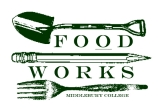“Be joyful/though you have considered all the facts.” Considering this quote, I find a release in them. This quote makes me think of life. For example, during the academic year, we all have a lot of works. I know the facts that I have to do homework even though I do not enjoy the class or the homework is really tough, long, and boring. But we have to force ourselves to love, enjoy, and get it going by being positive about it. I try to find the benefits of the subject and think that I will learn a lot from doing the homework. Therefore, I can enjoy the class and have fun with it. Classroom can be fun when we think of it as an laboratory; we can do the experiment there and see the result at the end. So enjoy the experiment!
At Middlebury, I adopted these practices to think positively about the class and enjoy it. I tried my best in the class and accepted whatever results turned out. Even though the results were not as great as I would like it to be, I think I have learned something from the class and I definitely will improve myself in the future. Just forget about the past and focus in the present.
For the next two months, I know that I have to deal with both stuff that I like and I don’t like, but I should be optimistic. For instance, I know that some days I have to pull weeds all day long, which is a boring and tolerance-needed stuff. However, when I see my garden looks beautiful and my plants grow well, I satisfy in the effort that I have put in. Moreover, not only me but also other people in the school will be delightful to see a nice garden and they are able to get the fresh produce right from the garden. Finally all of us are happy for the result. 🙂




